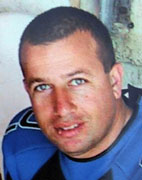NPR
Media Corrections
Accuracy and accountability are among the most important tenets of journalism. In combination, they mean media organizations are expected to publish or broadcast forthright corrections after sharing inaccurate information. The following corrections are among the many prompted by CAMERA’s communication with reporters and editors.
Updated: NPR Broadcasts Gaza Import Correction
CAMERA Prompts NPR Correction on Hezbollah Rockets
 CAMERA staff prompted a correction at National Public Radio yesterday, following an earlier "All Things Considered" report which falsely stated that Hezbollah fired rockets at Israel only after Israel hit Lebanon with airstrikes last summer.
CAMERA staff prompted a correction at National Public Radio yesterday, following an earlier "All Things Considered" report which falsely stated that Hezbollah fired rockets at Israel only after Israel hit Lebanon with airstrikes last summer. NPR Corrects Error in Gaza Story
 National Public Radio erroneously reported recent rocket attack victims were "Israeli soldiers" when they were, in fact, civilian residents of Sderot, including Oshri Oz above.
National Public Radio erroneously reported recent rocket attack victims were "Israeli soldiers" when they were, in fact, civilian residents of Sderot, including Oshri Oz above. The NPR Switch
CAMERA Obtains NPR Correction on UN Vote
Two NPR Corrections in Two Days
CAMERA Obtains NPR Correction on ‘Terror’ Terminology
UPDATED: CAMERA Staff, Members Prompt NPR Correction
CAMERA staff and members prompted an NPR correction concerning the extent of destruction incurred by the Jenin refugee camp in the 2002 Israeli operation.Ombudsman Jeffrey Dvorkin discusses the error and correction on the network's Web site. A CAMERA staff member provided NPR with a European Union statistic from a United Nations report disproving McCarthy's claim that the camp had been "largely destroyed." Jeffrey Dvorkin's March 24 commentary follows:
